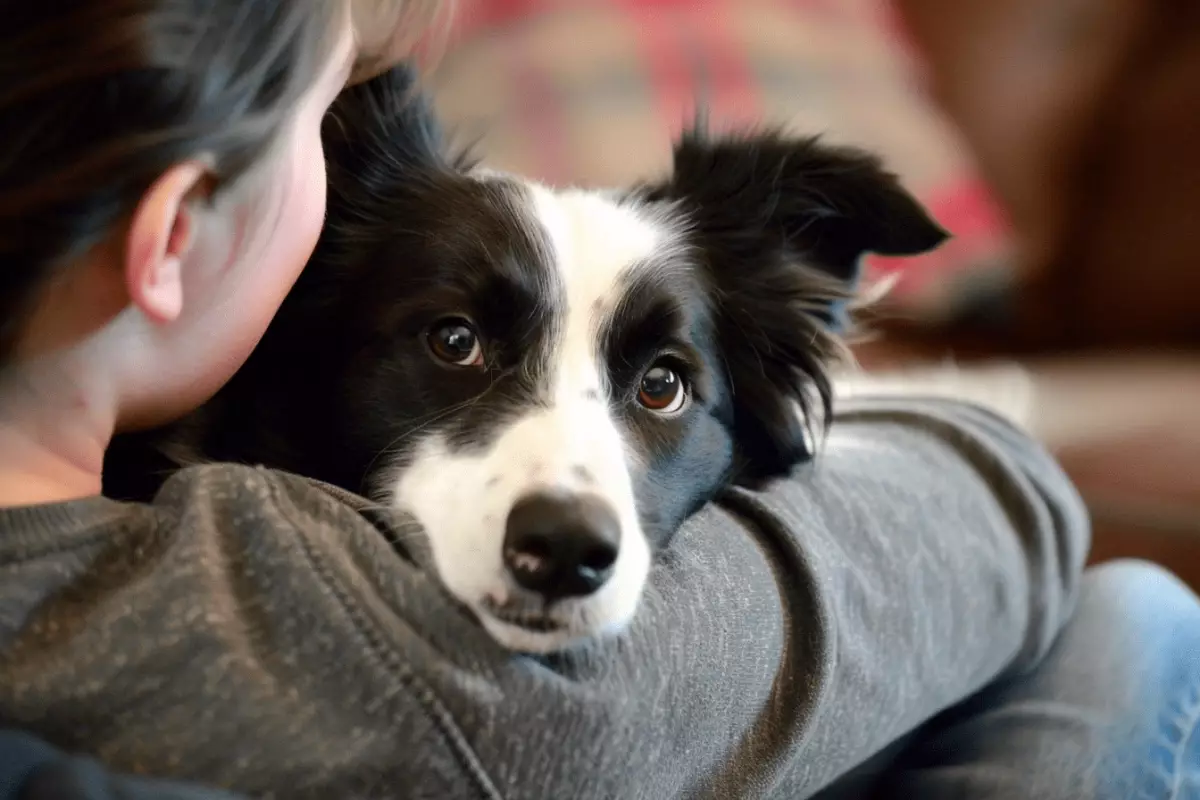There’s something magical about the bond between dogs and humans that transcends words. While they may not articulate their understanding of our complex emotions, dogs possess an innate ability to sense when we are feeling low. This connection is not just a figment of our imagination; it’s a remarkable biological response. When you’re grappling with stress, sadness, or simply having a rough day, your furry companion is often your first line of defense against despair. Their acute sensitivity allows them to instinctively know when you need a laugh or a comforting paw on your leg.
Dogs seem to have this unshakable mission to bring joy into our lives. Whether through playful antics, gentle nudges, or simply their reassuring presence, they offer unconditional companionship. If you’ve ever had a pup suddenly jump into your lap or plop their head on your shoulder during a tough moment, you know they are not just being cute. They aim to tell you, “I’m here; let’s navigate this together.”
Living Shadows: The Comfort of Presence
Ever experienced your dog shadowing every move you make throughout the house? This behavior goes beyond mere clinginess; it’s a silent commitment to being your emotional support system. Dogs often remain within arm’s reach, and this simple act of proximity can be incredibly comforting. They sit at your feet or lean against you, embodying that soothing presence when everything else feels overwhelming. In those moments, their companionship can feel like a protective barrier against the challenges of the world.
This innate behavior isn’t just about being near; it’s about creating a safe space for emotional healing. The warmth derived from a dog’s physical contact acts almost like a therapy session—providing us with a sense of security amidst turmoil. Just having a dog beside us is like wrapping ourselves in a blanket of affection and understanding.
A Gift of Happiness: The Power of Play
When your dog notices you feeling down, don’t be surprised if they approach you with their favorite toy. Dogs carry an instinct to share what they cherish, believing if a squeaky toy brings them joy, it can lift your spirits too. In their world, the act of sharing transcends mere play; it’s an offering of love and a tangible way to connect.
This sharing reflects a simple yet profound truth: dogs want to make you smile. They don’t care how you feel about playing; their goal is purely to bring you joy. Accepting their “gift” not only uplifts your mood but lets them know their efforts are appreciated, creating a delightful circle of emotional reciprocity between human and canine.
From Licks to Laughs: Diverse Modes of Comfort
The range of comfort that dogs provide is remarkable. You might notice that your dog throws themselves at you for a sudden licking spree when you’re feeling down. Though not the most sanitary method of affection, their sloppy kisses embody a deep-seated instinctual behavior of nurturing. This licking is their way of strengthening bonds, much like they would with their pack. They channel that care directly to you, their chosen human, as an attempt to wipe away your sorrow, making the world feel just a tad bit brighter.
And then there are the comedic relief moments. Dogs are natural entertainers, and when they sense you struggling with a frown, their playful antics serve as a welcome distraction. Whether it’s spinning in circles, playfully barking, or rolling over with sheer exuberance, their only aim is to elicit laughter—the universal language of happiness.
Eye Contact and Emotional Resonance
The connection you share with your dog can also manifest through their gaze. When your furry friend locks eyes with you during moments of distress, it’s more than just a curious look; it’s an invitation to connect deeper. This eye contact has been shown to release oxytocin in both dogs and humans. Scientists refer to this as the “love hormone,” enhancing feelings of attachment and emotional connectivity. In those fleeting moments, your dog’s silent shout of “I care” reverberates through your entire being.
Understanding how dogs respond to human emotions sheds light on their adaptability. They have a remarkable capacity to mirror our moods; for instance, if you’re anxious, they may adopt a watchful demeanor, staying alert to whatever might be perturbing you. Their empathetic responses reveal a genuine emotional intelligence that can soothe and harmonize zany human emotions.
Encouragement in Motion: The Push to Play
Sometimes, dogs take on the role of motivators when our mood strikes rock bottom. If you find yourself languishing on the couch, your dog might nudge you with their wet nose or drop their leash at your feet, pleading for a walk. Their efforts to get you moving are rooted in understanding; they recognize that a little fresh air can re-energize your spirit.
Even if you initially resist, their persistence is often endearing enough to compel you to rise and embrace the great outdoors together. Sometimes, the most effective uplift comes not from cuddling but through movement and a change of scenery, reminding us that joy often waits just beyond the front door.
By harnessing their instincts and abilities, dogs elevate our emotional well-being uniquely and profoundly, showcasing the incredible bond that humans share with their four-legged companions.

